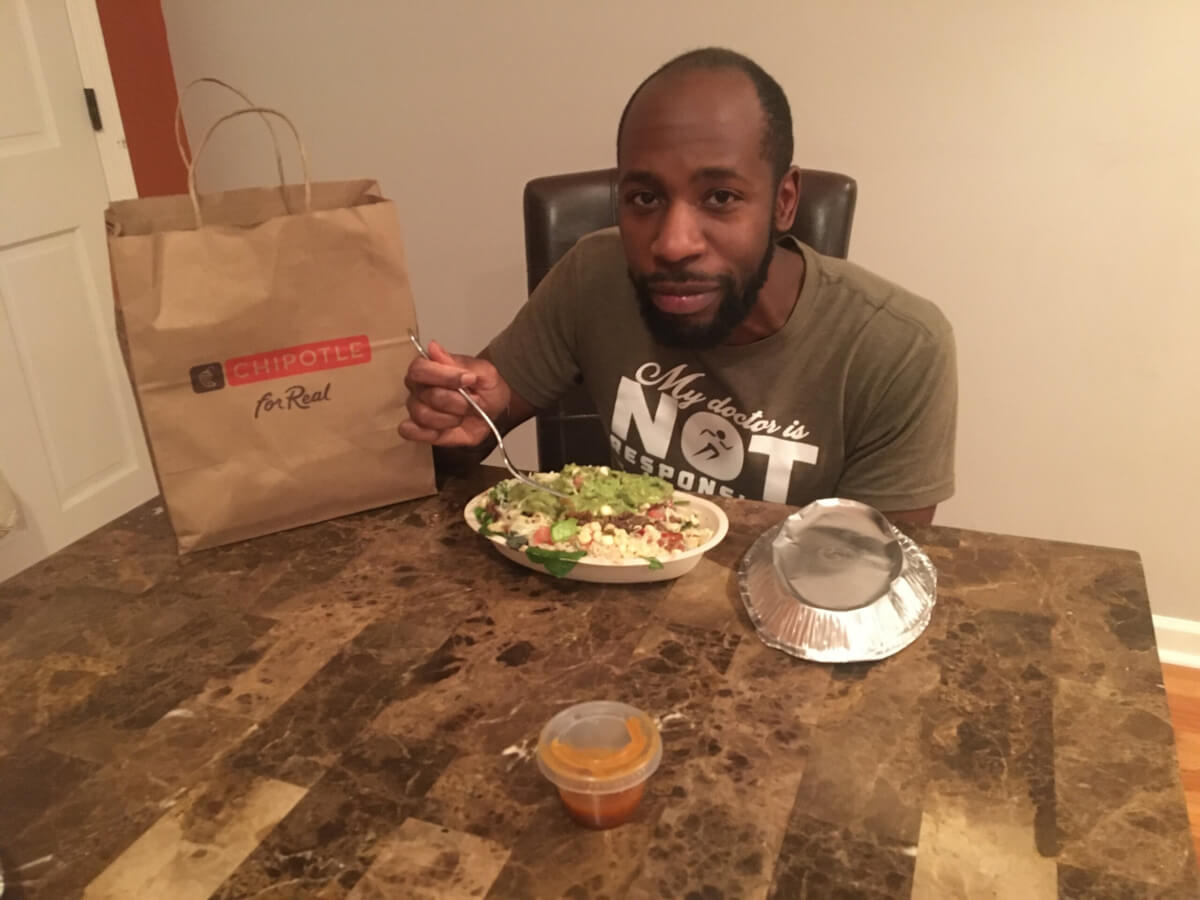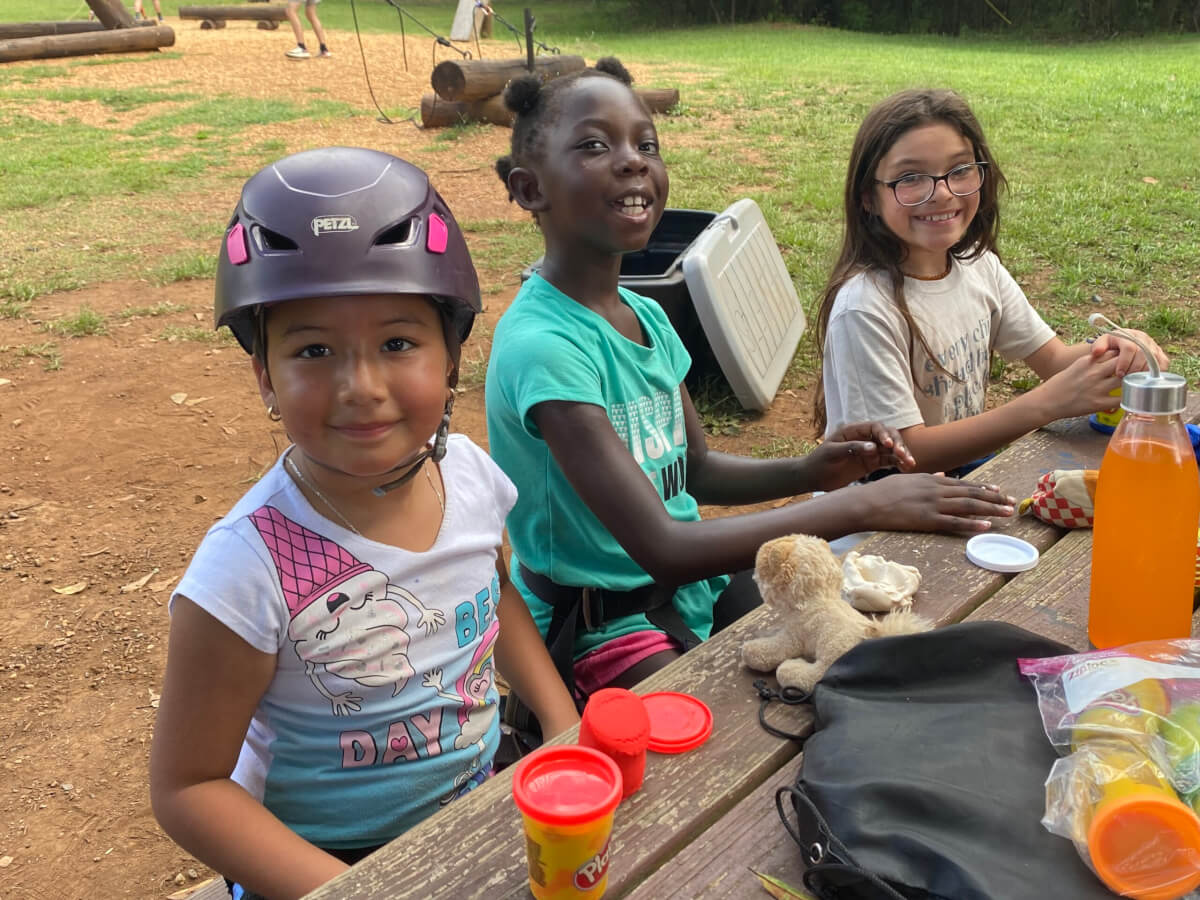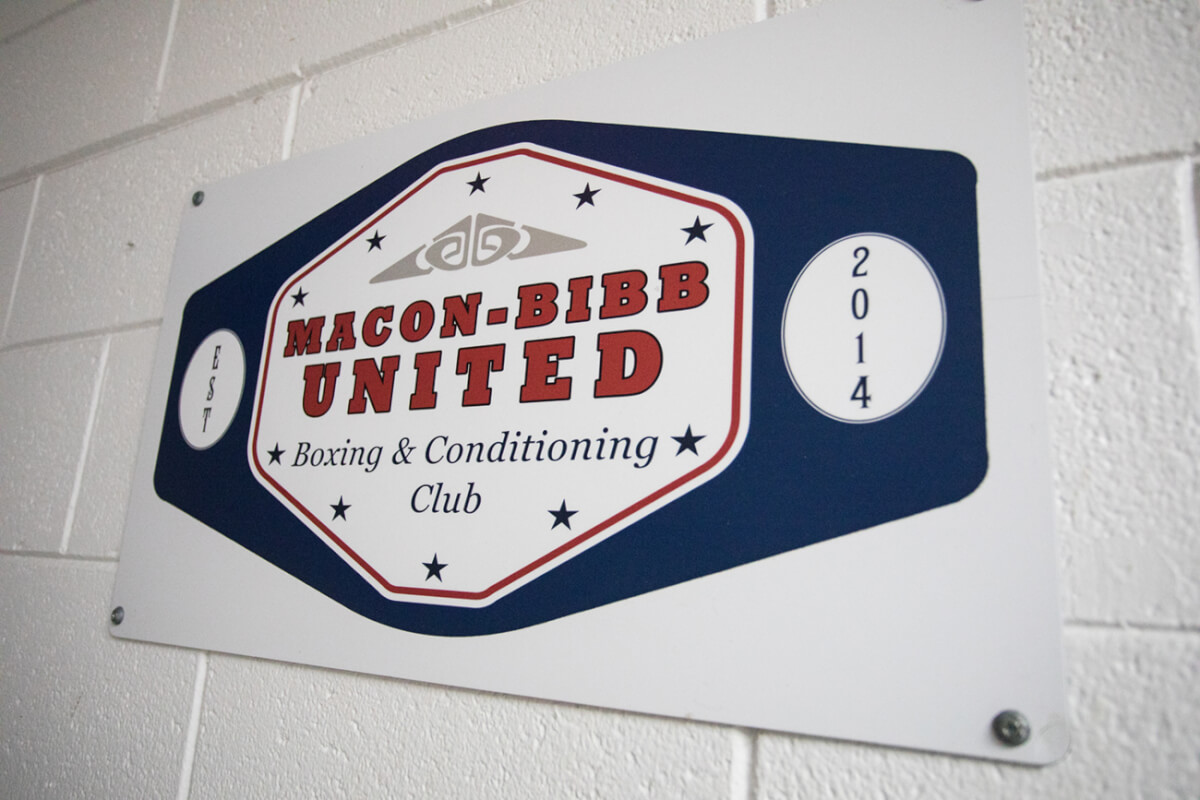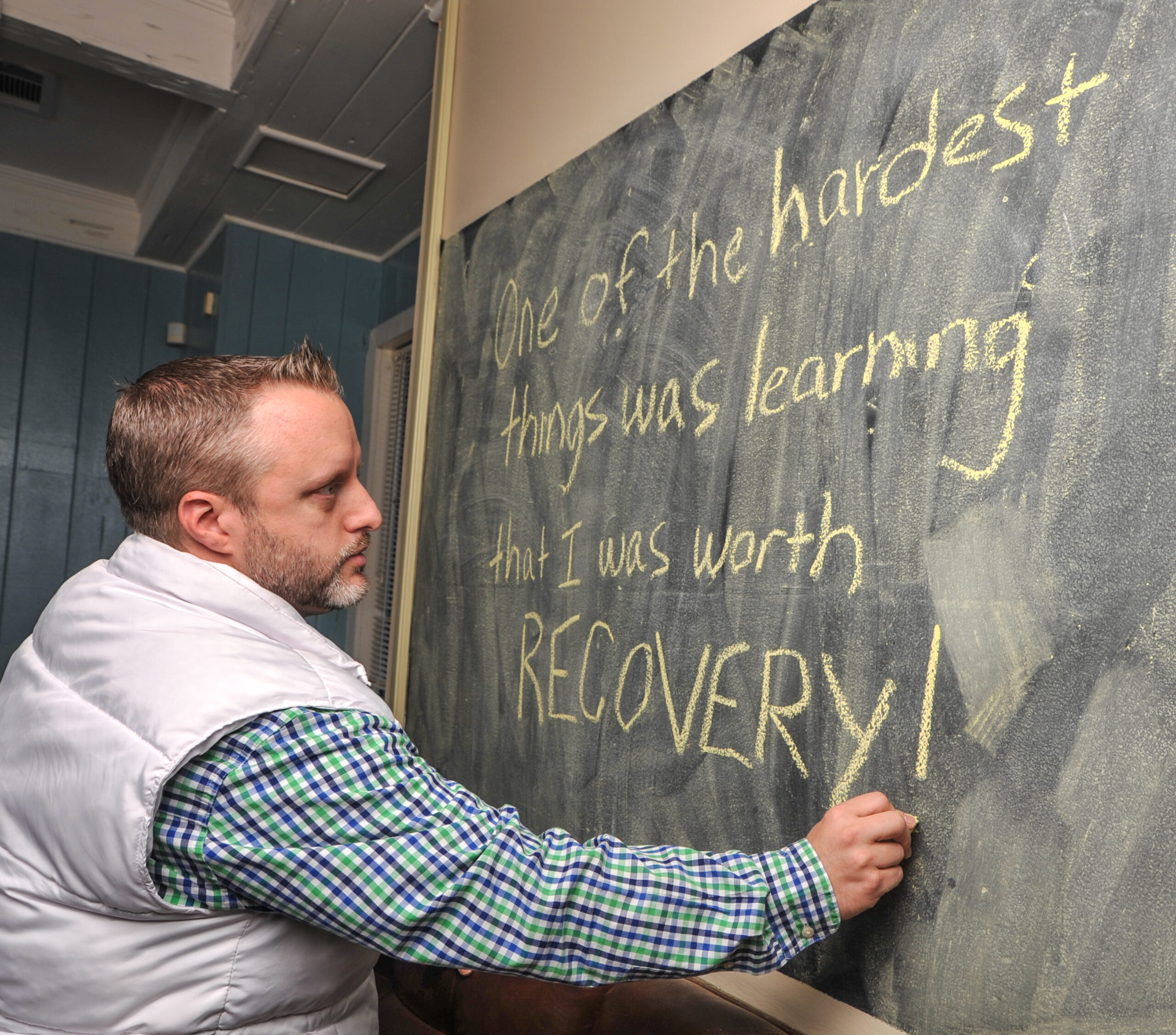
Moving forward, reducing opioid addiction
By Clarence W. Thomas Jr.
Photography by Dsto Moore
One of the most difficult habits to kick to the curb is drug use, especially opioid addiction. Central Georgia is not immune to this epidemic. But hope is here. Between a host of committed mid-state places of recovery and former drug users speaking out, many affected by addiction can move forward again.
THE DANGERS OF OPIOID ADDICTION
The Mayo Clinic defines opioids as a broad group of pain-relieving drugs that interact with opioid receptors in our cells. They can be made from the poppy plant, like morphine, or synthesized in a laboratory, such as fentanyl. Other opioids include oxycodone, hydrocodone, and methadone, better known as meth. At lower doses, opioids may make you feel sleepy, but higher doses can slow down your breathing and heart rate, leading to death.
According to the U.S. Department of Health and Human Services, since 1999, more than 760,000 people have died from an opioid overdose, with two out of three deaths in 2018 involving the drugs. In 2019, an estimated 10.1 million people age 12 and older misused opioids over the course of the previous year. Of that, 9.7 million were prescription pain relievers.
North Central Health District, which oversees health activities in 13 counties, including Macon-Bibb, keeps up with opioid usage and combats its misuse and the results of going too far for too long through Marissa Cody, the district’s overdose surveillance and planning specialist. She bridges the gap between her health district, law enforcement, and agencies like Atrium Health, Piedmont Medical, and Riveredge through the provision of opioid-related data.
Cody is a passionate advocate for the eradication of opioid addiction partly because she’s in long-term recovery herself and has been sober for the past nine years. “It’s very important to have someone here doing this work because the opioid crisis is so big and so real. I think it’s paramount to partner with those working inside to offset this epidemic,” Cody said.
According to Cody, in 2021, 107,622 overdose deaths occurred nationally, with 66 percent of them opioid-related. 71 percent of Georgia’s 2,390 overdose deaths were attributed to opioids. Bibb County had 33 overdose deaths that year with 75 percent linked to opioid use.
Efforts to put a dent in these stats are compounded by highly motivated dealers and easy access to users. Deadly forms like fentanyl can be infused into marijuana and other cheap consumable products and bought at low prices, Cody said. It’s a massive challenge requiring an even bigger collective effort to turn the corner. “We all have to work together to address this. It’s going to take as many people as possible to make an impact here,” Cody said.
THE TIPPING POINT
One of the tipping points — among many — that led to Glenn Otis Brawley’s drug use was being informed by his father that he didn’t think that Brawley was his biological son. Brawley felt defeated. Hopeless. Guilty. Ashamed.
These low points proved to be too much for the 64-year-old Kansas native, who arrived in Macon in 1994. Brawley found himself looking for relief in drugs. Crack cocaine was his primary drug of choice, but opioids — namely speed, barbiturates, LSD, and acid – became a go-to form of escape as well. “Drugs are drugs. I lived to use and used to live,” he shared. “Whatever I could access to alleviate the mental and psychological pain I was in was fine by me.”
No one is safe, warned Brawley. He was a military child from a state mostly known for its conservative midwestern family values and production of corn and cattle. But when what he described as the “triangle of self-obsession” (anger, fear, resentment) kicks in, it’s a power cocktail demanding comfort.
Vivian Spivey succumbed to drug addiction in 1993. Originally from Brooklyn, New York, Spivey developed post-traumatic stress disorder while serving as a soldier during Operation Desert Storm. The retired, disabled Army military policewoman said her experiences in a violent war zone, coupled with returning to a hero’s welcome, led to her experimentation with drugs in a party atmosphere. “The drugs caused me to forget my way. I stopped grooming myself and even stopped bathing and eating. My goal became recapturing my initial high,” said the 64-year-old mother of two. “It was bad. Thankfully, I literally today don’t look like what I’ve been through.”
Recovering addict Franky Tripp can relate to Brawley and Spivey. Now sober for four years, the 55-year-old Macon-born and raised Tripp, like Spivey, used opioids recreationally but warned that drug addiction is drug addiction, no matter what drug it is or what situation it’s used in.
Tripp began as a recreational user of marijuana as a teenager and graduated to methamphetamines in his mid-20s. Drug use and other personal choices led to eight years in prison and more time when he hit 40 years old.
While he didn’t use opioids extensively, Tripp saw what drugs did to people in his circle of addiction who were more reliant on them. “The pain these guys were going through when trying to come off opioids was incredible,” Tripp said. “Seeing that is one of the reasons I’m against all illegal drug use now.”
THE TURNING POINT
Dr. Harry Strothers, chief of Family Medicine at Atrium Health Navicent Primary Care West Macon, said that though there is no cure for addiction, there is possibility of remission. “A combination of a physician trained in substance use disorders and a support group like AA (Alcoholics Anonymous), NA (Narcotics Anonymous), or other 12-step groups have the best record of long-term remission,” he said.
There are options for turning things around. Two local resources are Next Step Recovery Ministries and River Edge Macon Recovers. Next Step Recovery Executive Director Todd Robinson started his platform to assist men in need of an on-site platform of restoration. His holistic approach to defeating addiction includes mentoring, instilling a new mindset, and spiritual development.
Robinson said addiction is rooted in things like broken homes, the introduction of drugs by friends and family members, depression, and a lack of direction and purpose. He observed that if a dollar figure could be attached to the opioid crisis, it would be in the tens of thousands per person.
At Next Step, turning things around begins with structure and the acceptance of responsibility paired with tough love and plenty of support. “If you want your life to be exciting and successful, you must have rules,” Robinson said. Men at Next Step also participate in counseling, readings, and meetings. “These guys are good guys. Most just made bad decisions along the way,” he continued.
For people living with substance abuse disorder desirous of an offsite means of recovery, consider Macon Recovers. Tripp Talley is the center’s recovery support supervisor and, as a person living in long-term recovery since 2017, relates to drug users seeking out help. Originally from Columbus, he started out as a recovery coach and has seen the fatal destruction addiction causes.
As a resource center for people dealing with addiction, Macon Recovers is where they can hang out and connect through conversation, art, journaling, and other recreational activities or get assistance with job placement or transportation. These tools have become invaluable in Talley’s agency’s efforts to positively impact drug addiction. “We help them rely on their prior resiliency. When people become addicted, they tend to forget about their strengths. Once they can identify their former positive traits, they can use them to correct their course,” Talley said.
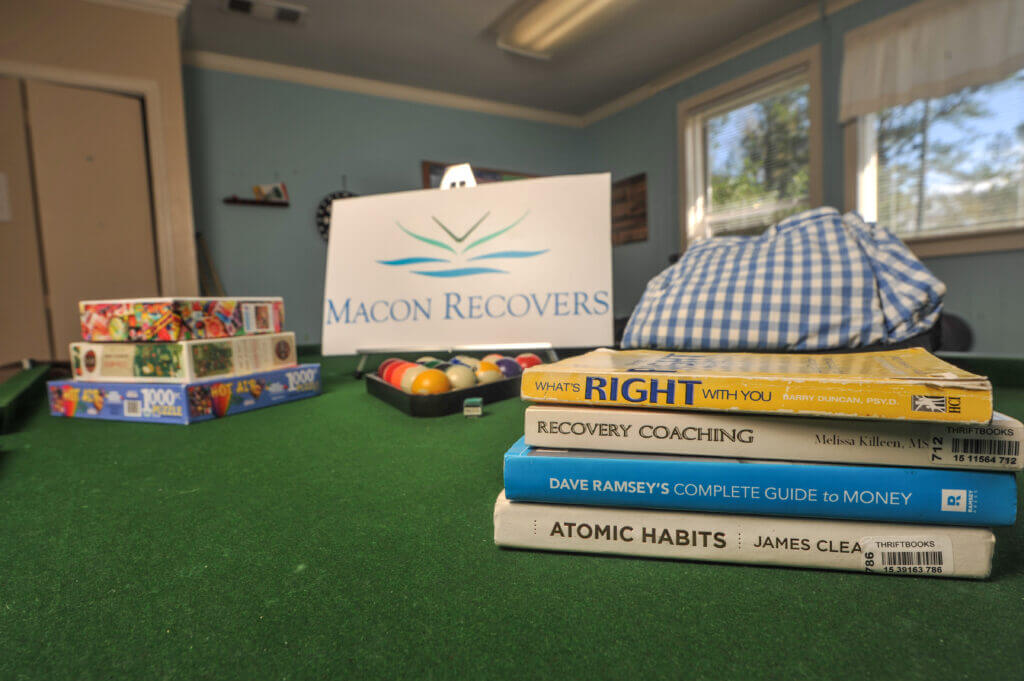
MOVING FORWARD
Brawley, Spivey, and Tripp all concluded that opioid addicts must take their own steps. Being tired of being sick and tired must take place first. Acknowledging the addiction and its cost is next. Last is finding a means of permanently offsetting addiction.
All three in closing remarked that drugs are not a respecter of persons. Addiction can happen to the rich, poor, educated, illiterate, male, female, young, old, professional, street, and church-going.
If someone you love is dealing with drug addiction or in recovery, Strothers advised, “Find a behavioral health professional or a support group like AL-Anon or Nar-Anon that helps you understand the disease and will help you avoid behaviors that enable a loved one to continue to abuse substances and increase the risk of death from that use.”
Glenn has been sober since May 1996 thanks to the nationally-renowned 12-Step Program he attended daily with Spivey. The program is spiritually-based and challenges addicts to acknowledge their problem and heal. “Living the life of an addict was a living hell,” Glenn admitted. “But it is possible to overcome addiction. Any addict can.”
“It’s a blessing to be an active participant in my life now,” Spivey said. “If I overcame addiction, others can, too.”
Tripp, an onsite recovering addict at Next Step Recovery Ministry who insisted on surrendering as the key to recovery, ended on this note: “I feel free and happy again. Being here allows me to be around like-minded people with the same goal. Being clean is great. I wish I had done it years ago.”
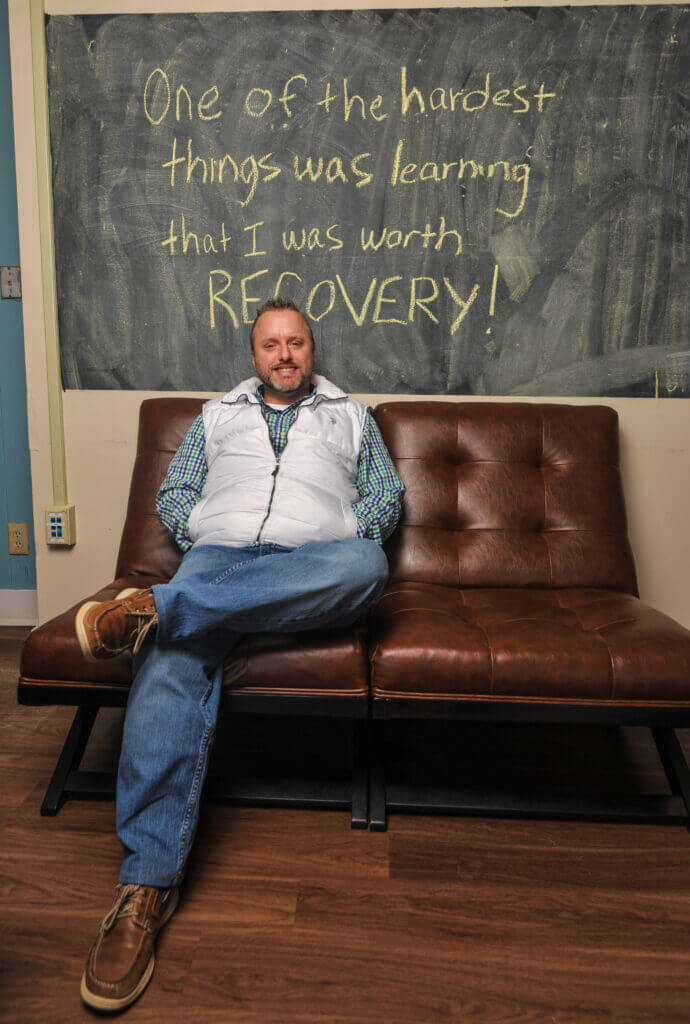
Macon Recovery Resources
1. Next Step Recovery Ministry
6751 Houston Rd.
Macon, GA 31216
478-284-1422
www.nextstepmin.org
2. Macon Recovers
595 Wimbish Rd
Macon, GA 31210
478-803-7661
https://www.river-edge.org/addiction-recovery/maconrecovers.cms
3. River Edge Behavioral Health
175 Emery Highway
Macon, GA 31217
478-803-7600
www.river-edge.org
4. Rescue Mission of Middle Georgia
6601 Zebulon Rd.
Macon, GA 31220
478-743-5445
www.rescuemissionga.com
5. Georgia Treatment Services Macon
6132 Hawkinsville Rd.
Macon, GA 31216
478-788-0066
www.georgia-treatment.com




